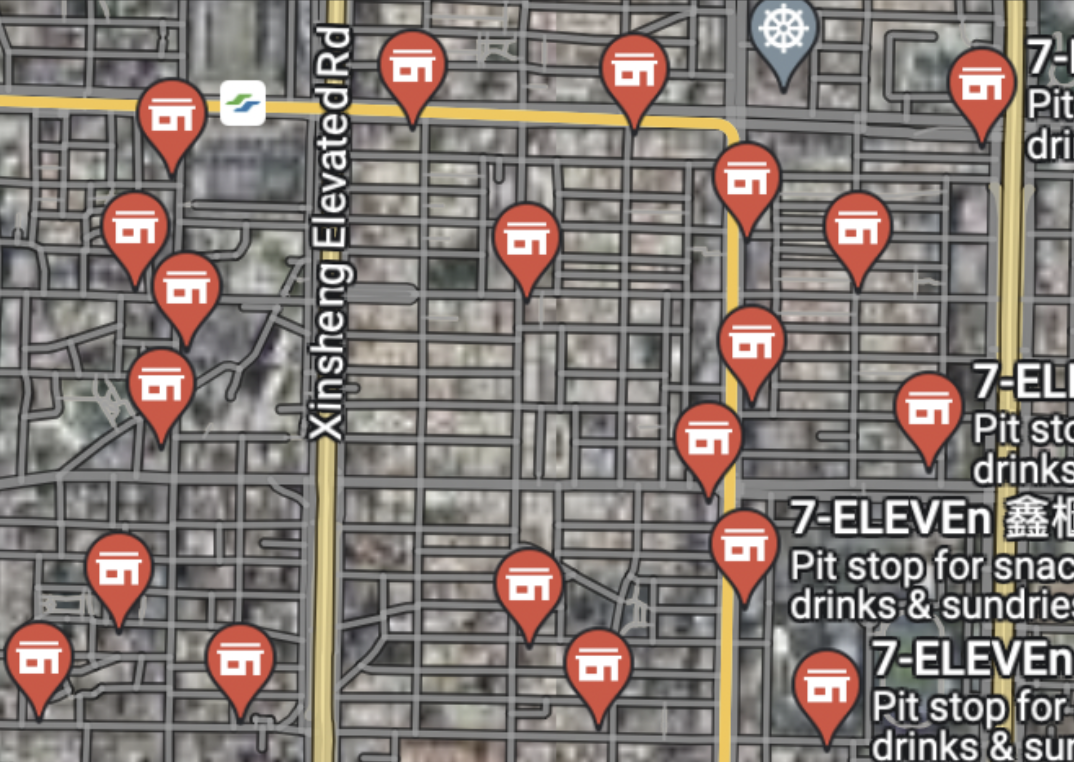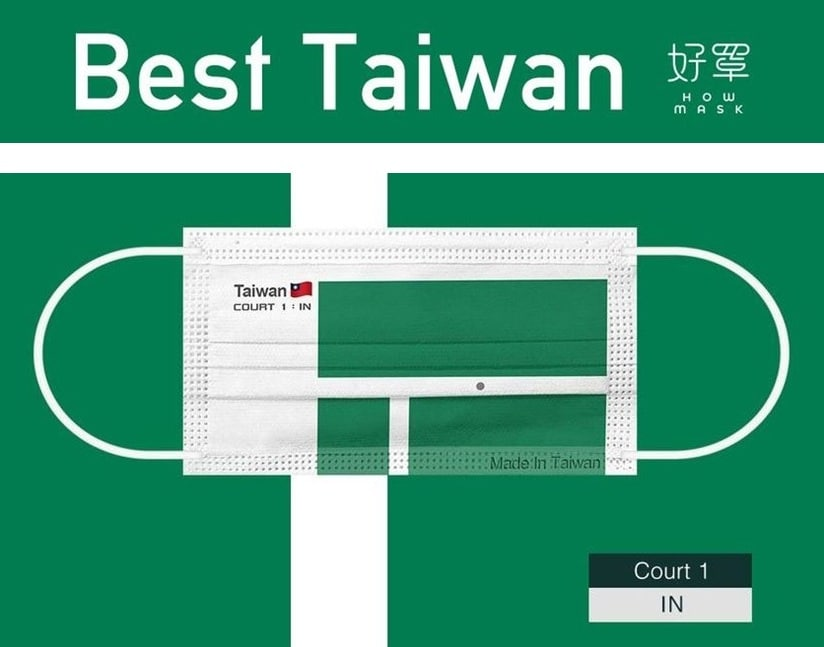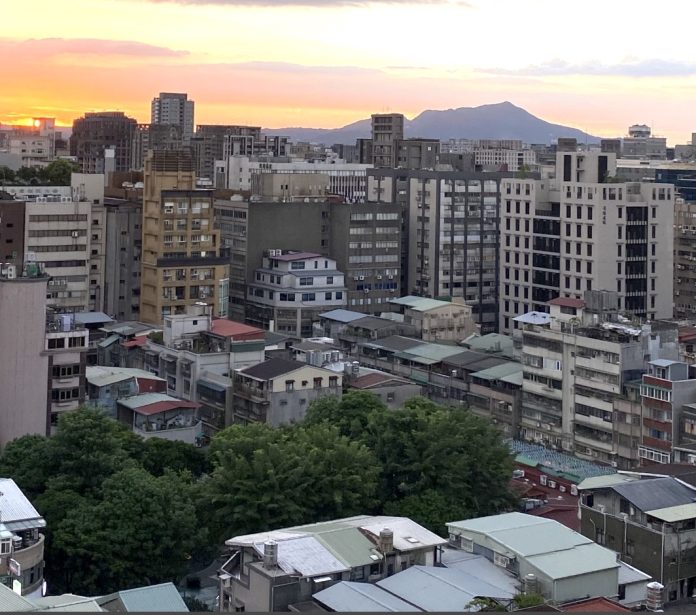It was an unremarkable morning in 2020. The streets were simmering with the daily din of two million commuters and a humid heat characteristic of Taipei summers. I was 11 floors up, working my first-ever internship masked and social distanced, glad to be enjoying air conditioning, when the room was seized by a violent buzzing of phone notifications.
“Earthquake?” was my first alarmed reaction, suddenly conscious of how high up we were.
Among our partitioned cluster of desks, several of my coworkers were popping their heads up like moles at the commotion.
“No, air raid drill,” someone said reassuringly.
Just like that, among several murmurs of surprise and sighs of relief people popped back down into their workstations, and that was that. Bewildered by the lack of action required this year, I closed my emergency google about earthquakes near me.
As a kid, I was terrified of earthquakes. I still am, but they don’t happen in Sydney where I am currently studying international relations. Years ago, sandwiched sleepless between my parents in our Taipei apartment, I would stare up and fear the ceiling caving in. Emergency grab-bags, a balcony escape route, predicting earthquakes by how much water vibrates in a glass… I had it all planned, just in case. Dying was not an option. Despite all my precautions, the possibility of an unavoidable fate from another country’s missiles never occurred to me.
Thanks to two colliding sea plates on the Pacific seafloor far below, Taiwan is a hotbed of seismic activity. Yet, the immediate threat posed by this all-destructive natural phenomenon is comparable to Chinese military action for our island nation. With earthquakes, as with Chinese warplanes crossing the Taiwan Strait’s median line, we are given a mere few minutes of warning to run for our lives.
As the office recovers, I send off a quick text to my parents: “The drill was too easy this year. I passed with flying colours LOL.”
Soon, my phone pings with a reply: “Just don’t fail when they actually bomb us! ????”
To them, air raid drills have been carried out as a national security contingency ever since they can remember.
This drill is the most disconcerting experiences a tourist can have, with the exception of the Covid years, in a place renowned for its ceaseless activity at all hours of day and night.
Once a year, within a few minutes, bustling pedestrians disappear, vehicles are abandoned at the side of the road, skyscrapers go dark. Unmistakably apocalyptic, cities with populations of millions are suddenly silent save for the echoing blare of alarms along deserted streets. Half an hour later, God presses play and life carries on as normal.
Glancing around, you would notice a palpable apathy despite the situation. Media reports of tensions across the Taiwan strait, Chinese missiles being aimed at the island and yet… In the darkness of the indoor shelter where you’re ushered during the drill, phone screens light up bored teens’ faces, elderly shuffle their plastic bags of groceries and chortle impatiently, office workers check watches. Seemingly, we eat this for breakfast but since our 2016 election of a democratic party president and Nancy Pelosi’s visit last August, China-Taiwan relations have never been worse.
Now, Chinese warplanes and warships circle over and around Taiwan, millions of cyberattacks are launched. As aggressions grow increasingly frequent, Taiwanese drills have become accordingly rigorous, adding vehicle evacuation in 2019 and lengthening across three days in 2022. During this period, I graduated high school and started university, while watching it all happen.
At lunch break, I stare out the office window at the bustling street, deciding what to eat. Even in a corporate district lined with business high-rises, they are but towering punctuations in clusters of squat residential housing. Many of these old eyesores now serve as storefronts for mouth-watering street food, where hungry workers flock at midday. They are, in fact, Taiwan’s historical roots exposed in plain sight.
When Taiwan was still viewed as a temporary base for the Chinese Nationalist party, building with cheap materials like tin roofs at high volume were used to combat a sudden housing crisis. These infrastructures still stand in mass, a frozen snapshot of the island’s origins; a manifestation of how present the past is in Taiwanese everyday life, despite all best attempts to forget it. China looms, but I’m getting hungry for lunch.
I step out into boiling streets with a route in mind. Darting between patches of sparse shade at high noon, I duck into narrower alleyways to avoid crowds on main roads. Soon, the heat starts leeching moisture from my lungs and I’m drenched in sweat. I give up on my hunt for food and duck into the nearest 7-11. Thankfully, they’re everywhere.

A saying in Taiwan is that we give directions by 7-11s: “When you see the 7-11, turn right. At the next 7-11, turn left.” Their convenience and affordability have been one of the things I miss most about home, second only to our people. You could leave your wallet in a metro station and count on it being in the lost and found. If you ask for directions, locals will walk you for hours to where you need to go, and any restaurant auntie will treat you as her own child. It is a national identity I embody and of which I’m immensely proud. However, on the international stage, 23 million Taiwanese are effectively considered otherwise.
My instant curry finishes spinning and beeps annoyingly in the microwave, but I am distracted. Along with everyone in that 7-11, I had my eyes glued to a men’s doubles badminton match at the 2020 summer Olympics, live from Tokyo on a tiny screen behind the cashier counter. As with any event garnering Taiwanese recognition, the Olympics that year had the nation in raptures. In a few days, the Taiwanese men’s doubles team would end up winning gold, but their victory would be under ‘Chinese Taipei’.

Under China’s worldwide assertion of the One China principle, nearly no countries recognise Taiwan. Known as the Republic of China or Chinese Taipei, we’re not part of the United Nations. Our flag cannot be flown, our national anthem cannot be played. When our athletes win at the Olympics, they win under the title of a country actively suppressing our independence. Perhaps it is this unique sort of tragedy that strengthens our camaraderie. In this sense, and many others, there is a curious duality in the Taiwanese experience.
Despite being a ghost country, we are quite flamboyant globally. As more and more countries fall victim to China’s expanding political profile, Taiwan is hailed as a beacon of democracy despite being right next door. TSMC, the world’s biggest chipmaker, is Taiwanese. With the US and China both vying for control in the South China Sea, an invasion of Taiwan is being described as the geopolitical flashpoint that will bring two superpowers to a head.
Because of this, it can be tempting to form an exaggerated image of Taiwan. At its best, a mirage of autonomous government prevailing in the face of rising authoritarianism; at its worst, a nightmarish projection, World War 3 waiting to happen. Amid those defiant in conflict, Hong Kong, Ukraine, Gaza, the world stands as witness to a spectacle unfolding on the global scale, but only those in the eye of the storm see its true colours.
I lap up the last few rice drops of my curry and try to resist buying myself a bubble tea. Making a mental note to finish the badminton match at home later, I step out the 7-11 sliding doors to a cheery goodbye chime. Immediately I am engulfed by an insufferable heat. As I begin the long trek back to work, the iced bubble tea offers little relief, but it is enough.


